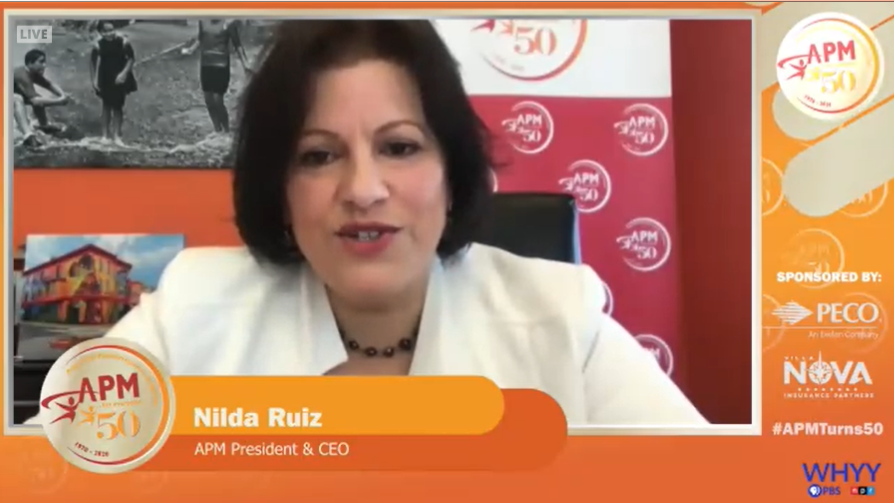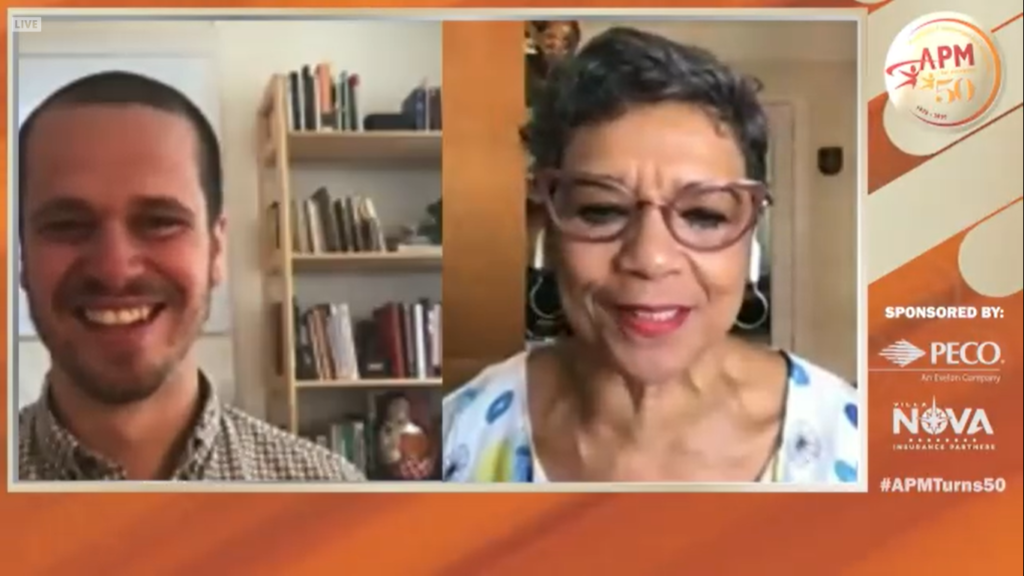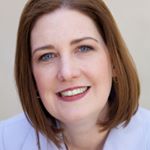APM pivots to virtual early education in response to COVID-19
 October 20, 2020
Category: Featured, Long, Purpose
October 20, 2020
Category: Featured, Long, Purpose
Nilda Ruiz, the president and CEO of Asociación Puertorriqueños en Marcha (APM), knows that firsts matter — in a city, an organization, or an educational experience.
“As a Philadelphian, I’m proud of our city’s many ‘firsts.’ Because so many good things happen in Philadelphia. The constitution was constructed here; we are the first in the country to have a public library. The first to have a hospital, a medical school, a zoo,” Ruiz said.
The organization which she heads — marking its 50th anniversary this year — also has a number of “firsts” to celebrate, Ruiz said.
“We were first to implement many Latino focused programming in human services and behavioral health, and most recently we are the first TOD [transit oriented development] Community Development Corporation to develop the first LEED Platinum Neighborhood Development project in the U.S., and second in the world (China being number one),” Ruiz said.

Nilda Ruiz, president and CEO of APM, during last week’s virtual program focused on early childhood education. (Screencapture)
Ruiz was raised in Philly by a single mother. “My mother knew that education provided options,” Ruiz said. “Her insistence that I pay attention — ¡presta atención! — to my studies is why I stand here now. The childhood that I experienced encompasses many of the same experiences that children in our low-income communities are facing today, even more so with the pandemic that has affected so many of our lives.”
APM has four centers that serve 600 early learners, and during the school year, the organization has had to find a way to reconnect with those children. Margarita Hernandez, senior director of APM’s early childhood education department, said APM has witnessed low-enrollment for preschool providers across the city for both face-to-face or remote-learning instruction.
“Families are afraid to send their children to our centers because they have family members with underlying conditions,” she said. “Many of our families have multi-generations in one household. Some of our families still need access to technology. And due to multiple users in a household, the internet signal is often unstable.”
Thanks to a community partner, TruMark, which made the funding available, APM marked another first — the organization purchased 600 tablets for the children its early education program serves.
“Our IT department programmed each tablet with kids’ games, educational apps, and a link to Zoom meetings,” Ruiz said. “Knowing many homes in our community are not equipped with internet, we gave every tablet direct access to the internet with a SIM Card. This also offered each family access to the internet.”
“Our loving and caring teachers volunteered to go to door to door delivering the tablets,” Ruiz added. “The teacher would leave the package on the student’s porch, knock on the door, then quickly pull back as the family came out to find the package. The children were ecstatic, shouting to their teachers, ‘We miss you! We want to go back to school.’ And they did. Virtually. The teachers were able to communicate with their students in a virtual classroom at least three times a week.”
Ruiz’s and APM’s focus on the importance of early learning is one of the reasons that the organization presented “Early Childhood Education in the Age of COVID-19” last week. It is the second program in a four-part anniversary speaker series that was reimagined virtually after COVID.
The October 14 brought Boricua actor and educator, Sonia Manzano — who for many years played María on Sesame Street — into people’s homes in a new way. Avi Wolfman-Arent, education reporter for WHYY, served as the moderator for the program.

Avi Wolfman-Arent, education reporter for WHYY (left), and actor-author-educator Sonia Manzano, during APM’s virtual speaker series presentation October 14. (Screencapture)
“For over fifty years the most popular and successful educational tool focused on early childhood education has been a children’s program that first aired on public television, Sesame Street,” said Hernandez in her introduction to the program. “In our city, Big Bird, Elmo, and Rosita all came into our homes from right here, at WHYY.”
Born to a working-class family in New York City’s Bronx barrio, Manzano experienced traumas rooted in her family’s and neighborhood’s socioeconomic struggles, experiences she’s shared in her recent memoir, “Becoming Maria, Love and Chaos In the South Bronx.”
“I named [the memoir] ‘Becoming María’ because I remembered everything that happened to me as a kid, [which] is why I was a success as María,” Manzano said. “I didn’t overcome a hard childhood, I actually embraced it.”
“Kids are resilient; you don’t have to give them all the answers,” she said. “They bring stuff to the table. You do have to guide them, point them in the right direction and watch them fly.”
In addition to Manzano, the panel included Dr. Pedro Rivera, the former secretary of education at the Pennsylvania Department of Education, who noted that as children are growing up in the midst of the global pandemic “they are observing what is going on, they are analyzing what they see and hear, they are gathering data and forming conclusions and then they are reflecting on those pieces of information.”
Rivera, who grew up in the Hunting Park section of Philadelphia, was still serving as secretary of education on March 13 — a day, he said, that he will remember that day for the rest of his life.
“We had to make a decision to shut schools down as a result of the number of increased positive COVID-19 testing in communities across PA,” he said. “Nothing like this has ever existed before contextually, scientifically, process-wise.”
Rivera said they worked to “try to find ways get food into the houses of some of our most vulnerable students and our most vulnerable communities. Families were lining up a mile away from food banks and other institutions to try to have access to those meals.
“These systemic issues have always existed,” he said, “but now COVID-19 exacerbated the fact we have these inequities in many of our communities across the country.”
Dr. Robert Stechuk, director of early childhood education programs for UnidosUS — the nation’s largest Latinx civil rights and advocacy organization — was also part of the conversation. He stressed the importance of early childhood education, particularly language learning.
“When we look at who are the successful readers in high school, the skill sets that children brought on their first day of kindergarten, the learning they did between birth and 5 are essential to their long-term reading and academic success,” he added. “One of the key pieces of the Sesame Street design was trying to boost children’s vocabulary knowledge.”
He also made the case for early childhood education that includes bilingual learning, noting that when children are exposed to two languages prenatally, they recognize those languages, and they recognize that they are separate.
“Being able to learn skills later on in life,” he said, “is absolutely improved the earlier you learn a second, third or multiple languages.”
###
Upcoming in APM’s 50th Anniversary Speaker Series:“Inequality, Race, and Gentrification” on November 10, featuring John Quiñones, and “Childhood Trauma” on December 9, featuring Elizabeth Smart. For more information go to www.apmphila.org or call 267-296-7363.
Trending News










